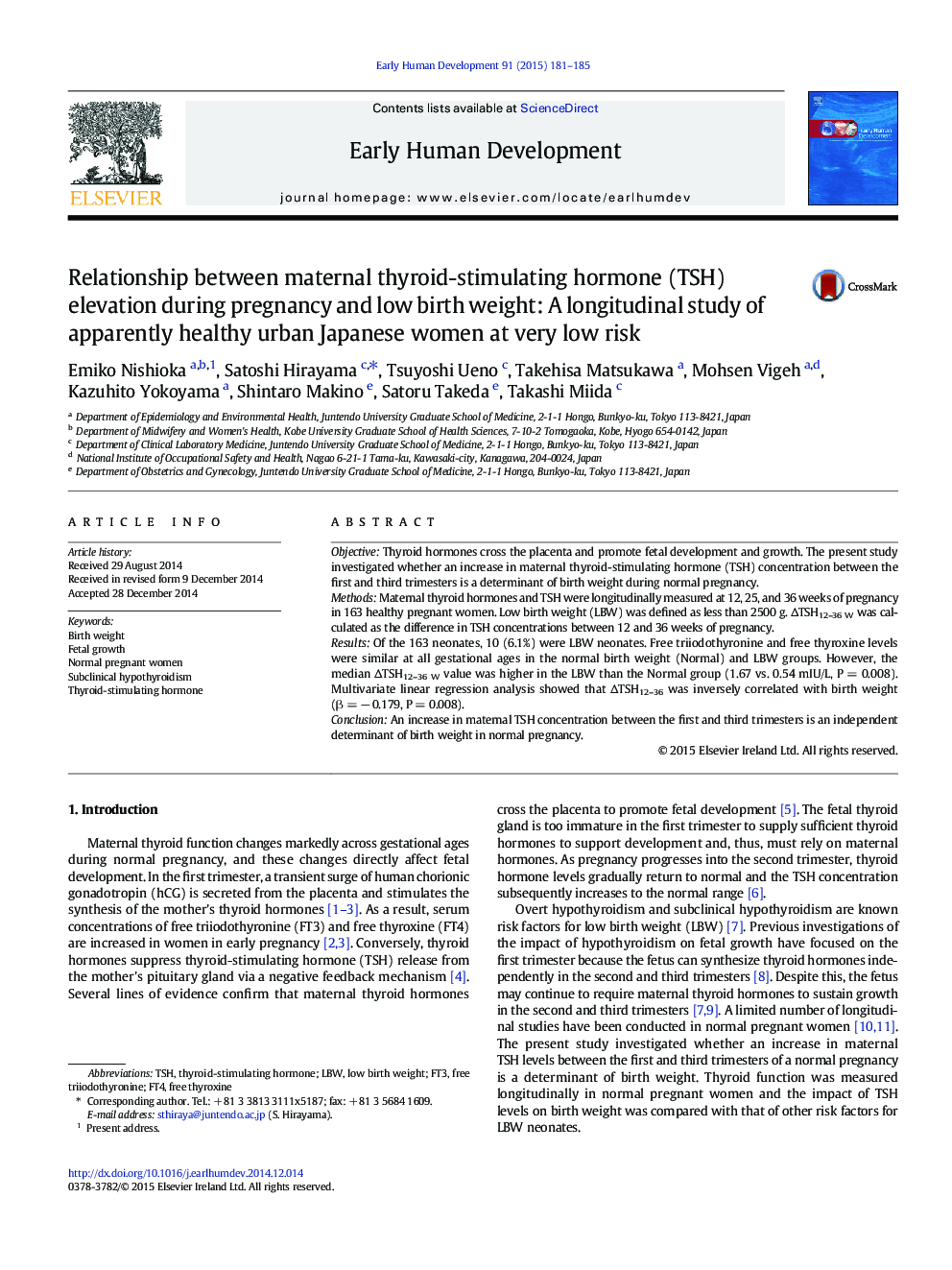| Article ID | Journal | Published Year | Pages | File Type |
|---|---|---|---|---|
| 3916999 | Early Human Development | 2015 | 5 Pages |
•Maternal thyroid hormones and TSH were measured during normal pregnancy.•These hormones were compared between low birth weight (LBW) and normal groups.•An increase in maternal TSH in third trimesters was larger in LBW than in normal groups.•An increase in maternal TSH is an independent determinant of newborn LBW.
ObjectiveThyroid hormones cross the placenta and promote fetal development and growth. The present study investigated whether an increase in maternal thyroid-stimulating hormone (TSH) concentration between the first and third trimesters is a determinant of birth weight during normal pregnancy.MethodsMaternal thyroid hormones and TSH were longitudinally measured at 12, 25, and 36 weeks of pregnancy in 163 healthy pregnant women. Low birth weight (LBW) was defined as less than 2500 g. ∆TSH12–36 W was calculated as the difference in TSH concentrations between 12 and 36 weeks of pregnancy.ResultsOf the 163 neonates, 10 (6.1%) were LBW neonates. Free triiodothyronine and free thyroxine levels were similar at all gestational ages in the normal birth weight (Normal) and LBW groups. However, the median ∆TSH12–36 W value was higher in the LBW than the Normal group (1.67 vs. 0.54 mIU/L, P = 0.008). Multivariate linear regression analysis showed that ∆TSH12–36 was inversely correlated with birth weight (β = − 0.179, P = 0.008).ConclusionAn increase in maternal TSH concentration between the first and third trimesters is an independent determinant of birth weight in normal pregnancy.
